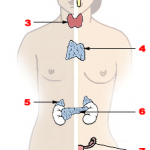I started a depression support group seven years ago. It’s one of the most meaningful things I’ve ever done. We started out with ten people. It met once a month. Over time, it evolved into every-other week. We now gather once a week. I’ve been asked many times about how to start a depression support group. Here are a few pointers to help you get going. They’re in no particular order of importance.
1. Be clear about what a support group is
A support group is a regular gathering of folks suffering from depression who share their struggles with fellow sufferers to gain insight, strength and hope. These meetings are less structured and more open-ended and the content doesn’t come from a mental health professional. In constrast, group therapy is more structured, focused on teaching, and has a clear outcome that the group is trying to reach. They’re led by a therapist.
2. Picking a place
I suggest you seek out a place to meet at a school, college, church, community center, library or other free space in your community. I guess you could have it in your home. I have never done that. I don’t know anyone else who has. In my view, the problem with this spot is that you must be prepared to have it there every single time. It may put a lot of responsibility on you. What happens if you’re sick or on vacation and can’t host the gathering? I also don’t suggest rotating the location of the meetings to different members’ homes. This doesn’t work because it becomes just too complicated for people to remember where the meeting is being held. Pick one place and stick with it.
3. Determine a schedule
With the help of initial support-group members, decide how often to meet and for how long. For example, every two weeks for 60 to 90 minutes. My experience has been not to fiddle with the day and time you ultimately pick. Members in my group know, come hell or high water, meetings start at 12:30 sharp and end at 1:30 every single Friday. They need not think about it. If they miss some meetings, they’re not left hanging about when the next meeting is.
If others tend to come late to the meeting, always start it on time anyways. My experience is that people appreciate this. Everyone has busy schedules and other things to do. Meetings should be no less than once every two weeks because interest can wane if the group doesn’t meet often. If the meetings are too far apart, people forget each other’s stories.
4. Talk with your therapist
If you’re in therapy, talk with him or her about what you plan on doing and why. They know you well and can offer some suggestions. They’ve either run groups and/or been trained in how to do so. Get some ideas.
5. You don’t have to rebuild the wheel
Depression support groups happen everyday around the country. They’re run by various organizations such as the Depression and Bipolar Support Alliance. Check out their website to see where these groups meet in your community and go to a few to see how they function.
6. How Do I Find Support Group Members
You need to get the word out. Develop a flyer that briefly describes your group, where and when it meets, and contact information. You may also want to contact other support groups and ask if they can refer people to you or market your group on Facebook and other social networking sites. One thing I did was to write columns in my local paper about my own experiences with depression and the support group. This helped enormously. People connect with personal stories. It also helps people overcome the stigma of attending a meeting. If you’re comfortable with it, ask to speak at your local church or other social organizations you might be a part of. Another way to find members is to search for therapists who have offices within a 10-mile radius of where the meetings are going to be held. I’d send them flyers so that could refer people in need of support. Most therapists aren’t even aware of such groups. So educate them!
7. Have and opening and closing ritual
Early on, our group crafted an opening that we read before every meeting. I have typed out the opening we use at my group at the end of this blog. Towards the end of the meeting, I will say, “We’ve got about ten minutes left, is there anyone who hasn’t shared that would like to speak?” I’ll then conclude, “See you all next Friday at 1:30.” A consistent structure to the meetings helps a lot.
8. Arrange for refreshments.
Ask support-group members to take turns providing snacks and drinks if desired.
9. Create a confidential list-serve
It’s a good idea to get everyone’s email address to communicate with the group in the event of a meeting cancellation due to the weather or other problems. Sometimes, your usual location needs to be changed on a particular date because the building is closed for the holidays, etcetera. Send out an e-mail the day before the group meets to remind them there’s a gather the next day. People get busy and like these little pokes. I also forward onto members of group activities – sometimes we meet for dinner or breakfast. I also pass along depression blogs or news I’ve come across that might be interest. A confidential list-serve is easy to create. Check out this webpage about how to create a list-serve through Goggle. This is what I use. To make it confidential, I e-mail myself notices and blind copy the rest of the group. It works.
10. Leaders
A support group leader(s) is responsible for maintaining the structure of the group and keeping the group on topic. Leaders also set up meetings and clean up afterwards. They must be a bit assertive; if you are not comfortable being assertive, look for this quality in a co-leader.
11. Asking others to join the group – be sensitive to their concerns
Because of the stigma associated with depression, people are sometimes resistant to join a support group. They don’t know what to expect. “Will other people attending the group know me? Will this be embarrassing? Would this really help?” Then there are others who have attended other depression support group meetings and found them lacking. One of the most common things I hear is that many of the folks who attend these meeting aren’t working, are on disability and aren’t planning to go back into the work force. Let me be clear on this point: in no way am I criticizing people who are in this situation. In fact, I feel deep compassion for them. But for people who are in the workforce or those temporarily out of it who want to get back in, it isn’t always good fit. Be aware and sensitive to this issue. If I sense that people would like to come to the group, but are apprehensive, I meet them for coffee. Believe me, it helps to reassure them. Maybe a perspective member might not be a good fit for your group. If so, be honest with them and refer them to another.
12. Remember that it takes time to start and keep a group going
I have known other people who have felt the passion and courage to start groups only to see them fizzle out because of a lack of members or organization. That can be discouraging, no doubt. When I first started the group, I’d worry about how many people would come. For example, I’d be disappointed if 4 people came. I somehow felt like a failure (why can’t I get more people to come?) or a big success if 15 came (“Wow, this is great. People think this is important!”) But in the past seven years of running my group, I learned that numbers don’t count for much. It’s the quality and depth of sharing that counts. Some of the best meetings I’ve attended have been with small numbers of people. It allows more time for each person to share more details of their struggles that they otherwise may not been able to do in with a larger group setting because of time constraints. Commit to keep the group going for at least one year. It will have its ups and downs. You need to be persistent.
13. Remember to stay on topic.
You’ll notice some participants drift into other topics like buying a new car, gossip or recent things in the news. Help keep the group focused and on task. It’s a depression support group, plain and simple. The majority of people are there for that reason. It’s simply not fair to others who need the support to listen to others who want to talk about things other than their depression-related issues. If people want to talk about these issues, they can do so before or after the group.
14. Be careful not to let someone dominate the talk
This is a common and tricky problem I’ve had to deal with over the years. We address this in the opening ritual, but people need to be reminded of this for the benefit of the group. An individual member may sometimes need a bit more time to talk than usual. That’s okay. But if it becomes a chronic issue, take the person aside after the group and gently address it with them.
15. Share resources
Many people who come to groups have read books about depression that have “spoken” to them in a meaningful way. I’ve shared my own favorites in a blog, Dan’s Top Ten Depression Books. Group members can also create such a list and distribute it. From time to time, my group has also come up with a list of recommended therapists and psychiatrists in our area. Again, a very helpful thing for people who don’t have one or are thinking of switching (a very common issue).
16. Hire a therapist to attend the group
Our group has hired a therapist to facilitate our meetings during different times in our history. It’s absolutely not necessary to have successful group, but may be helpful. How to find one? Send out a letter to local counselors that you’re group is looking for one. How do you pay for it? Take up a collection from the group. For example, if you have 10 people (an ideal number of members for a support group, by the way, is 8 to 10 folks), ask that they each kick in $10 per group meeting to pay for the therapist. The psychologist in our group didn’t talk much during the meeting, except at the end. He would sum up some of the themes he heard and offer a few helpful tips and observations. I thought this worked well and was a real benefit to the group. You can also ask a local therapist to volunteer their time to this worthy effort.
17. Get trained as a peer support person.
There are different organizations that offer such training. Check out DBSA. Attend other depression support groups in your community to see how they run it.
18. Commit to confidentiality.
Make sure everyone in your group understands that what’s shared in the support group stays within the group. I can’t stress this issue strongly enough. People need to feel safe. Without that, the group just won’t succeed.
Ritual Opening for a depression support group
Welcome to the {insert group name] support group for people coping with depression.
Depression is a bio-psychosocial phenomenon meaning that it affects people in their biological, psychological, and social areas of daily function. Depression is a health problem that does not discriminate by gender, race, religion, occupation, or intellectual ability. It is not a moral weakness any more than asthma, diabetes, or hypertension are. But, similar to these other illnesses, depression is highly treatable and can be managed effectively. Interpersonal support is an important part of depression management.
This group is anonymous and confidential. Here is a forum to share your stresses and your experiences in coping with depression. We ask that group members suspend judgment of others, refrain from direct advice giving, and allow adequate time for all participants to share their respective stories.
We seek the serenity to accept the things we cannot change, the courage to change the things we can, and the wisdom to know the difference.
Have you ever taken part in a depression support group? What have your experiences been? Do you have any additions to this list that would help someone form a group? Please share.




















